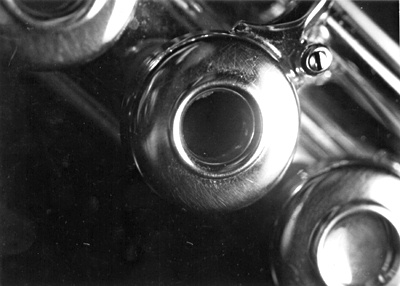All Nonfiction
- Bullying
- Books
- Academic
- Author Interviews
- Celebrity interviews
- College Articles
- College Essays
- Educator of the Year
- Heroes
- Interviews
- Memoir
- Personal Experience
- Sports
- Travel & Culture
All Opinions
- Bullying
- Current Events / Politics
- Discrimination
- Drugs / Alcohol / Smoking
- Entertainment / Celebrities
- Environment
- Love / Relationships
- Movies / Music / TV
- Pop Culture / Trends
- School / College
- Social Issues / Civics
- Spirituality / Religion
- Sports / Hobbies
All Hot Topics
- Bullying
- Community Service
- Environment
- Health
- Letters to the Editor
- Pride & Prejudice
- What Matters
- Back
Summer Guide
- Program Links
- Program Reviews
- Back
College Guide
- College Links
- College Reviews
- College Essays
- College Articles
- Back
Try and Try Again
I remember how powerful I felt after completing my first high school band audition. I’d been practicing for months, preparing the pieces and scales, and I felt ready. I felt confident. I strode into the room with my head held high, and I greeted my band director with a grin. And when I performed, I felt like I nailed it.
A couple of weeks later—when all the results had been tallied, printed, and posted on the notice board for all to see—I found out that I didn’t make the cut. I’d failed. Months of hard work, that burst of confidence, and I’d failed.
Thankfully, I didn’t cry in that hallway, jam-packed with band kids. I smiled, thanked my friends for their condolences, and assured them that I trusted in the directors’ judgment. Surely, they put me where I needed to be. Surely.
I didn’t cry on the bus home either.
I cried when I got home and saw my mom sitting on the couch, waiting to hear about my day.
A week later, the directors opened up their office for conferences about the audition results. It was never a question—whether I was going to meet with them or not—but I still had to steel myself before knocking on that door.
I battled the turmoil off of my face and asked my band director how I did.
“Well,” he said, “you had good tempo, great rhythms, but I only gave you a 6/10 on your tone quality. It was lacking.”
As a freshman, I’d been playing the flute for five years, and that was a problem I didn’t know I had, let alone how to fix it. How do you fix tone quality? It was never taught in class.
Luckily, my private instructor had the answers, and, with her help, we whipped my tone into shape. Instead of practicing whenever I felt like it, I stuck to a strict regimen, getting at least thirty minutes five times a week. I shifted my focus from just the notes on the staff to the shape of my embouchure and the placement of my jaw as I played. I lowered my jaw, and I worked with my breath support—breathing deeper and training myself not to overblow. I kept honing my vibrato, and I threw myself at the audition pieces.
When March auditions rolled back around, I was once again knocking on that door with my heart in my throat. I was more nervous than the year prior, but I knew how hard I had worked. I knew that I wasn’t the same flutist anymore. The only question was whether or not I was what the directors were looking for, and this audition was my chance to prove myself.
Despite all my practice, I still didn’t have the perfect audition. I fumbled a few notes, I could have emphasized the dynamic shifts more—but I kept going and I didn’t let my mistakes distract me.
When I walked out of that room, I felt certain that I’d performed worse than the last time.
A week later, the audition results were posted, and I was scared to look. But I did, and, this time, I got in.
I know where I went wrong with my first audition. That was the first time I’d ever been challenged. Middle school wasn’t anywhere near as competitive—there were only five other flutes back then, now there were thirty, and there are only ten spots in the honors bands. I let myself become arrogant. I thought I didn’t have to try. I’d grown complacent.
Failing that audition saved my playing. It forced me to start actively fighting for improvement. It showed me that I needed to be critical of myself and put in extra effort to see the results I wanted. That failure allowed me to become the musician that I aspired to be.

Similar Articles
JOIN THE DISCUSSION
This article has 0 comments.
